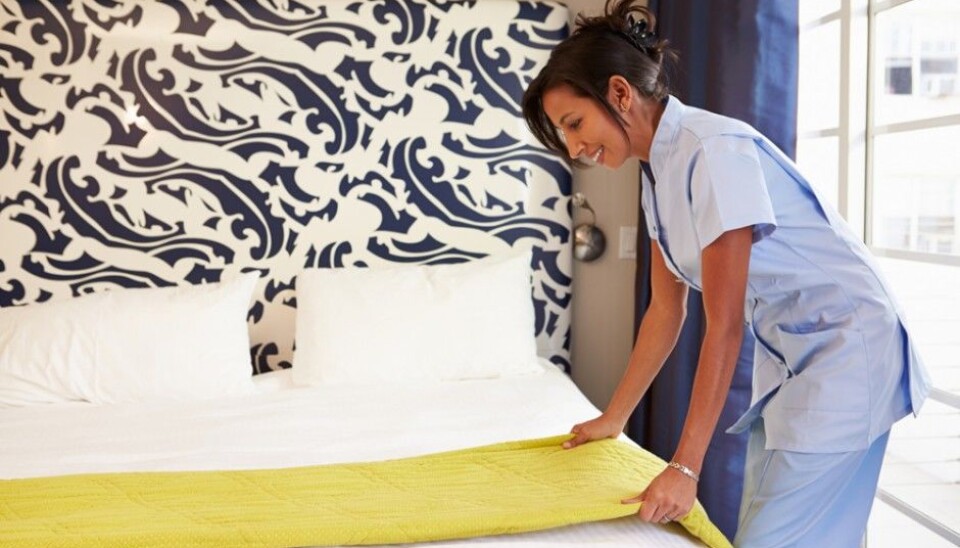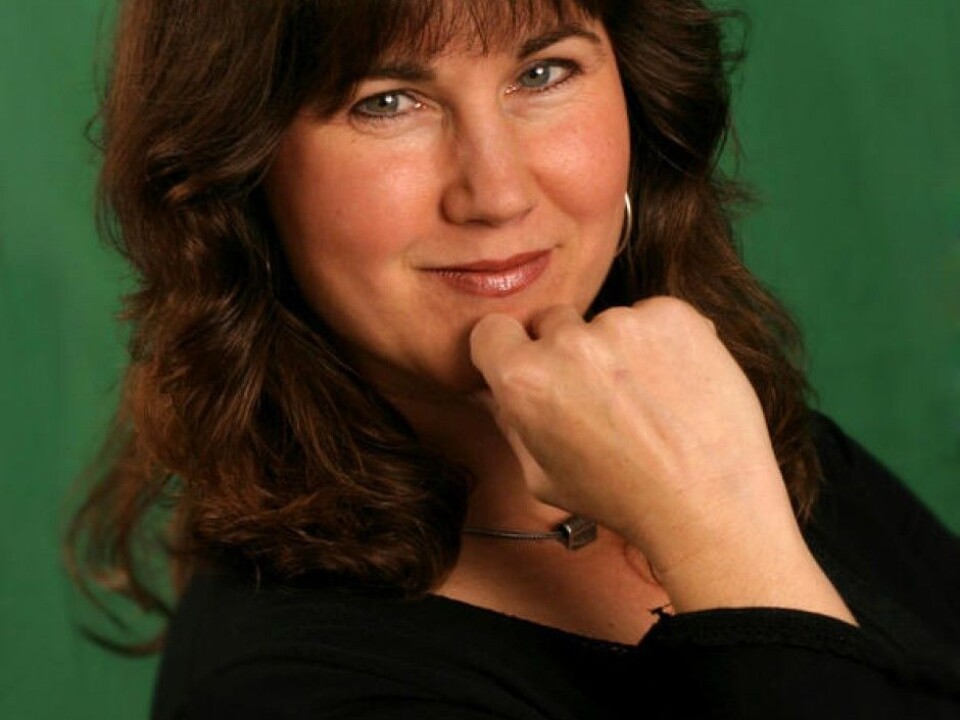
The hotel industry - a job trap for non-native speakers
Applicants with immigrant backgrounds can easily get a job at a hotel. But the industry needs to develop better inter-departmental strategies to support career development.
Denne artikkelen er over ti år gammel og kan inneholde utdatert informasjon.
Many immigrants from non-Western countries get jobs in housekeeping at Norwegian hotels. Less demanding Norwegian language requirements than in other departments are part of the reason.
Hotel managers see immigrants as attractive employees in the jobs they perform. But many workers were well educated in their homeland and come with valuable skills that are not used in their cleaning jobs.
Little opportunity to practice Norwegian
“Many people want to advance to other tasks. But they feel like they’ve ended up in a kind of ‘job trap’,” says Tone Therese Linge, who works at The University of Stavanger’s Norwegian School of Hotel Management. She recently received her doctorate in Media and Communication at the University of Oslo.
Linge has interviewed workers with foreign language backgrounds and executives at Norwegian hotels. Both parties say that the lack of language skills in English or Norwegian is the main reason immigrants have trouble advancing in their careers.

A cleaner commented, "If you can’t speak Norwegian or English, sign language is all you have, and this is one way you will be discriminated against."
Many of the interviewees point out that they do not have the opportunity to practice and improve in Norwegian because they mostly work with others who do not speak Norwegian fluently.
Humour cuts both ways
Hotel staff members with foreign language backgrounds report that they often feel excluded from the rest of the work culture.
Inclusion is also linked to informal social work relationships and to understanding the social language at work, according to Linge.
Workers identify jokes, humour and irony as important factors that contribute positively to the work environment and that lighten the heavy housekeeping work.
But when immigrants do not understand the joke — because of language or informal social code barriers — the feeling of being excluded from the social environment is reinforced.
Differences that divide
“Another reason many workers feel excluded in their workplace is because there is no common working language, yet there are clear distinctions between different ethnic groups,” says Linge. At one hotel, employees say that they sit in different groups based on where they come from. Those with few colleagues from the same country feel left out.
Clear distinctions also exist between employees in the various departments. Some housekeeping employees feel looked down upon as compared with their Norwegian colleagues in other departments. Employees working both as chambermaids and in room service say they feel almost invisible when they are wearing their housekeeping uniform, but when they have on their room service uniform, employees in other departments often greet them.
One hotel simplifies the language and content of memos that go out to the housekeeping department. The less-nuanced information creates a negative communication spiral, where the less Norwegian an employee knows, the less information they receive. This results in fewer opportunities for non-native staff to engage and influence key decisions in the workplace, says Linge.
Some managers say they have experienced misunderstandings with employees, such as saying yes when they really mean no, but did not dare say no. Combined with a hectic work pace and stress, this contributes to negative attitudes and conflicts. The study findings show that many communication problems are due to a lack of knowledge about how different cultures handle feedback.
Good communication strategies
Linge discovered that housekeeping departments know a lot about managing people from different cultures and effective communication among them, gained through years of experience in multicultural work environments.
“Checklists and key questions are examples of strategies that ensure understanding, and they minimize work errors. The challenge is to develop better procedures for sharing such expertise across departments,” says Linge.
"Need to be blond to work at the reception desk"
Limited language skills are not the only hindrance to career advancement, according to many of the immigrant employees interviewed. Several non-native housekeepers speak good Norwegian, but they are not applying for receptionist jobs or other positions in the hotel.
According to Linge, they don’t believe that they would get them anyway. This makes her wonder whether these employees are contributing to creating barriers to their vocational mobility.
This attitude may also be linked to clear stereotypes about ethnic differences in hotel jobs, she says. One housekeeper told Linge, "You have to have black hair to work in housekeeping, and you need to have blonde hair to work at the reception desk."
“Many immigrant employees are an untapped resource for the hotel industry. They know a lot of languages and have knowledge of different cultures, which can improve customer care,” says Linge.
Reference:
Tone Therese Linge: Including or excluding workplace communication? Analyzing communication competence in multicultural hotel work places. University of Oslo, Doctoral dissertation, April 2015.
------------------------------------------------
Read the Norwegian version of this article at forskning.no




































